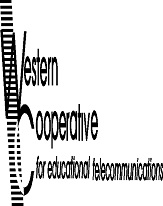25 Years of Advancing Excellence in Technology-enhanced Teaching and Learning
Published by: WCET | 9/9/2013
Tags: Distance Education, Online Learning, Technology, WCET, WCET Annual Conference
Published by: WCET | 9/9/2013
Tags: Distance Education, Online Learning, Technology, WCET, WCET Annual Conference
 In 1989 a group of people committed to improving access to higher education across the western region met in Denver to form a cooperative organization to leverage technology for distributed education and to advance excellence in technology-enhanced teaching and learning . These forward-thinking individuals helped develop the Western Cooperative for Educational Telecommunications, which eventually became the WICHE Cooperative for Educational Technologies, or what you know as WCET. Twenty-five years later WCET has grown into a national organization with members across the United States and even Canada.
In 1989 a group of people committed to improving access to higher education across the western region met in Denver to form a cooperative organization to leverage technology for distributed education and to advance excellence in technology-enhanced teaching and learning . These forward-thinking individuals helped develop the Western Cooperative for Educational Telecommunications, which eventually became the WICHE Cooperative for Educational Technologies, or what you know as WCET. Twenty-five years later WCET has grown into a national organization with members across the United States and even Canada.
The convening in 1989 was the first WCET Annual Meeting. The program didn’t include best practices or innovative uses of technology enhanced learning, the sole purpose of the meeting was to develop the organizational principles of WCET. The following year WICHE staff worked with the University of Wyoming and US West to get a T1 connection to the venue so that the attendees could experiment with an emerging technology called electronic mail. E-mail was not immediately embraced, why would people want to send an email when a phone call or face-to-face conversation would suffice? And fax machines were now ubiquitous.
Fast forward 25 years to WCET’s Silver Anniversary. Cell phones are in everyone’s pockets and weigh 20 ounces less than the  original Motorola DynaTAC 8500XL and cost about $2,000 less! E-mail is being edged out by texting as preferred communication (phone conversations are so 2001, and please don’t leave me a voicemail as it is so time consuming to dial, enter my pin, and listen to your message). In 1988 very few of us had desktop computers and now many of us wonder why we have desktop computers when we can do everything we need to with a handheld device.
original Motorola DynaTAC 8500XL and cost about $2,000 less! E-mail is being edged out by texting as preferred communication (phone conversations are so 2001, and please don’t leave me a voicemail as it is so time consuming to dial, enter my pin, and listen to your message). In 1988 very few of us had desktop computers and now many of us wonder why we have desktop computers when we can do everything we need to with a handheld device.
As the technology has evolved so has distance learning and the WCET Annual Meeting. The Annual Meeting is one of several fall conferences for the higher education edtech community, but the WCET event stands alone in that it is still a convening of edtech leaders dedicated to improving access to education. WCET’s meeting goes beyond the current edtech trends and informs attendees of  emerging issues, trends, and national policies impacting institutions. Another nod to progress is the WCET mobile program app, who would have thought back then that you could forgo the printed program for an interactive app on your mobile device!
emerging issues, trends, and national policies impacting institutions. Another nod to progress is the WCET mobile program app, who would have thought back then that you could forgo the printed program for an interactive app on your mobile device!
One of the newest evolutions of the WCET program are the in-depth sessions which bring expert panel members together for a hybrid session that is part presentation and part action-oriented small group discussions. The in-depth sessions are carefully crafted to address current issues impacting all involved in edtech. The topics are:
Another highlight of the 25th Anniversary program is the general session presentation bringing together several of the WCET friends from the first Annual Meeting during the WCET Pioneers of the Ed Tech Frontier session on Thursday, November 14. The panel will discuss some of what has changed, what has remained the same, and where we as an organization maybe headed over the next 25-years.
Whether this is your first WCET Annual meeting or your 25th, we welcome you to the cooperative and look forward to continued collaboration towards the mission of accelerating the adoption of effective practices and policies, advancing excellence in technology-enhanced teaching and learning in higher education.
What are your thoughts about where we have been and where we are headed in edtech?
1 reply on “25 Years of Advancing Excellence in Technology-enhanced Teaching and Learning”
Looks like that Internet thing may be worth paying attention to after all:-)
See you there!
david